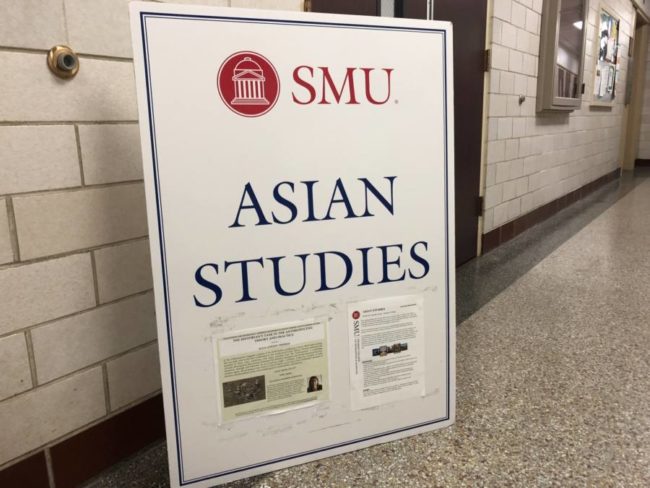At “The Historians Task in the Anthropocene” lecture on Oct. 4, Notre Dame History Professor Julia Adeney Thomas suggested humans are altering the Earth in damaging ways and there is no way to reverse what has already been done.
Thomas used the word Anthropocene to describe a new age in history that is happening right now due to the destruction humans have caused on the Earth. New technology and innovations have transformed the planet like never before and that is what has led to the Anthropocene.
“One of the ways of thinking of this new age is as a rupture in the Earth system which is unprecedented, unpredictable and irreversible,” Thomas said in her lecture in Fondren Science Building.
Oxygen levels are decreasing, animals are going extinct and the way humans are using land with new technology is changing. Thomas said in order to keep the Earth sustainable for many generations in the future, humankind needs to make an effort to learn about history and use it as a template for how to take better care of the Earth.
“Historians should use the past as a disciplinary tool, not just to describe events of history but to choose what is important in order to be able to make changes for the future,” Thomas said.
SMU senior Hana Berry agreed with Thomas about our role in taking care of the planet.
“I try and recycle and do my part in the community,” Berry said. “In the future I am going to take some of the things that she said to conserve more of my life.”
Thomas referenced the Tokugawa period in Japan between 1600 and 1868 as a model for how humans in 2018 can live a more simplistic lifestyle centered on well-being and taking better care of the planet.
“This society was able, through a whole conglomeration of techniques, to maintain itself fairly well without stripping the hillsides of its forests,” Thomas said.
Not everyone pays attention to or cares about the Anthropocene, but Thomas’ goal is to inform people so that they can reevaluating their impact on the environment and look at new ways to help conserve the planet. Some popular options that most people can try are organic farming, shopping at local farmer’s markets, using less water, eating less meat and commuting more efficiently.
The people in the audience smiled when Thomas said she met SMU Professor of History Johan Elverskog by chance at the Toronto Airport. Elverskog invited Thomas to speak at SMU’s second annual Asian Studies Lecture Series and he agreed with what Thomas said about the Anthropocene.
“Students and faculty should attend because climate change is one of the most pressing issues of our age,” Elverskog said. “Thus, we need new ways to think about our future in the age of the Anthropocene.”









